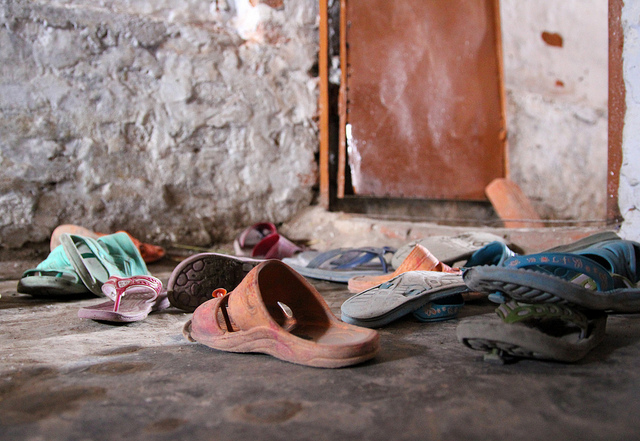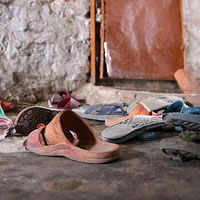
The stories now featured on the site touch on many issues, but one theme they have in common is the role that religion plays in driving people to get passionately involved politics and activism — and how difficult it is to find secular ways to kindle the same fire. In Saving Souls, Benjamin Gottlieb profiles an enterprising humanitarian group that is busily educating poor children in Delhi’s slums. But the work of COI and other evangelical Christian groups continues to draw controversy in India, a once-colonized nation now booming economically and working mightily to assert its own cultural identity. In Losing Zion, Rob York reviews the book The Crisis of Zionism, which argues that the two-state solution to the Israeli-Palestinian conflict is dying, ruined by extremism in Israel and the apathy of the liberal American Jews who could help bring about a broad-based peace movement.
Religious groups have been almost unmatched in their ability to train activists and build social movements. In America, the most obvious recent example is the pro-life movement and the cultural warriors it has drawn from the pews of evangelical, Catholic, and other congregations. But the civil rights movement, too, acquired its power and breadth by filling the streets with churchgoing protesters, and filling its rhetoric with the biblical language of freedom, struggle, and redemption.
Wherever people congregate, they organize. Social scientists talk about how churches (and other houses of worship) serve as reservoirs of social capital — the web of relationships that connect people and bring about various benefits, including the ability to rally around political causes. Generally speaking, this is great for democracy. And many religious groups have managed to find a balance between doing God’s work and respecting views that diverge from their own. But in America, Israel, and elsewhere, it seems the people getting inspired and engaged come from the extreme, intolerant ends of the political divide, trapped in their own dogma and their own sets of facts.
I used religion as a jumping-off point for my comments, but really the problem is not religion, but fundamentalism of whatever kind — religious or economic or nationalist or otherwise. The Tea Party, for example, is crusading on behalf of an uncompromising economic fundamentalism that verges on religious fanaticism, with its own patron saints in F.A. Hayek, Frédéric Bastiat, and Ayn Rand — ironically, a mirror image of the earlier cult of communism. But religion appears to motivate many of these true believers, too, and may help explain the movement’s success in organizing. On the question of Israel and Palestine, too, the same dynamic seems at work: the more devout and dogmatic speak louder.
Perhaps the recent wave of global protests against corruption and austerity — for example, the indignados demonstrations in Spain, or Occupy Wall Street and its related movements in America — will help balance the scales. Churches and synagogues have been heavily involved in the organizing of the Occupy actions across this country, reminding us that the religious right is not the only voice of faith in the streets and on the megaphone.
That said, younger Americans seem to be turning away from religion, while the secular ways that ordinary people have traditionally gotten involved in politics are in decline. Labor unions have been dwindling away in America for decades — the one bright spot in recent years was public-sector unions, and the recent failed Wisconsin recall election may have been their Waterloo. Political parties rely increasingly on big donors and independently wealthy candidates, while the old political machines that groomed leaders out of local wards are disappearing. Young people continue to rally to various causes on college campuses, but it will be hard to fill in the hole left by these institutions, which could organize in a sustained, concerted fashion and appeal to broad segments of the population.
This is yet another reason that we can expect politics to become more partisan and extreme in the coming years. The hard-liners are hungry for power, while more reasonable men and women stand by and watch. It brings to mind words by the Irish poet W.B. Yeats: “The best lack all conviction, while the worst / Are full of passionate intensity.”
The center cannot hold, as Yeats wrote. And things didn’t end too well in that poem.
Victor Tan Chen Victor Tan Chen is In The Fray's editor in chief and the author of Cut Loose: Jobless and Hopeless in an Unfair Economy. Site: victortanchen.com | Facebook | Twitter: @victortanchen
- Follow us on Twitter: @inthefray
- Comment on stories or like us on Facebook
- Subscribe to our free email newsletter
- Send us your writing, photography, or artwork
- Republish our Creative Commons-licensed content

